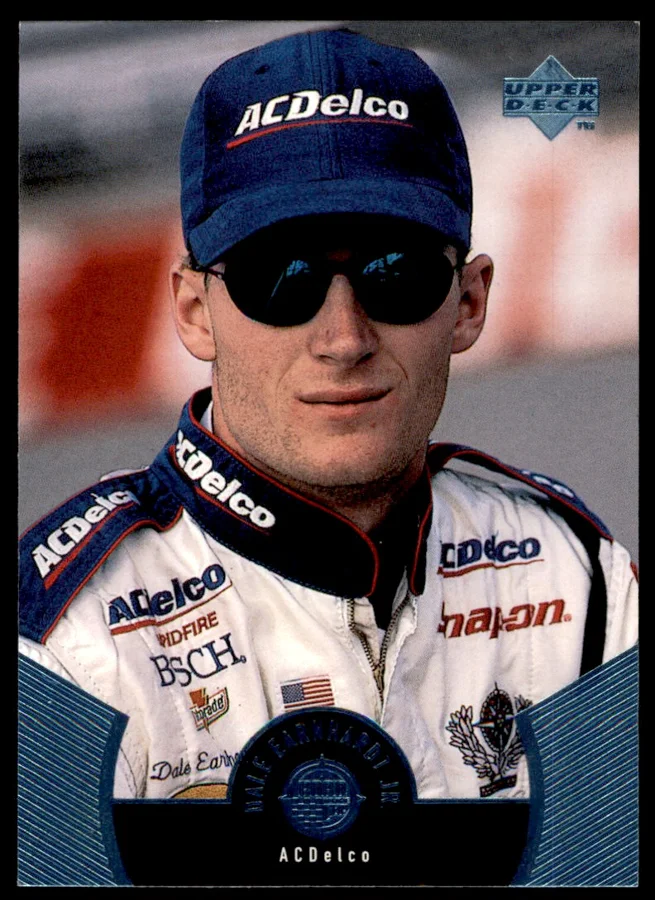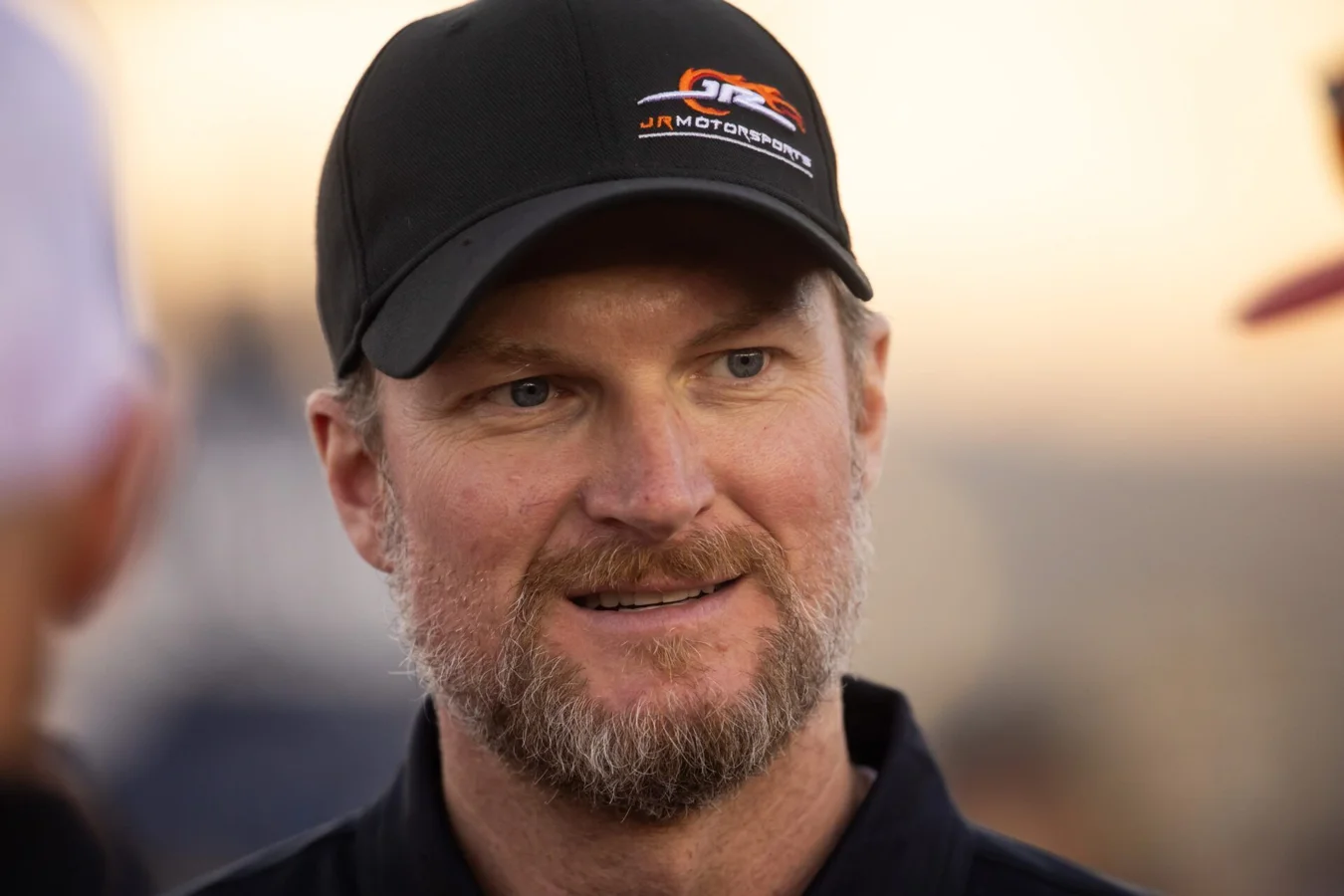NASCAR has erupted with controversy as Dale Earnhardt Jr. publicly criticized Austin Hill’s mentality after two consecutive on-track incidents that left the racing world unsettled. The issues surrounding Dale Earnhardt Jr. on Austin Hill mindset became the focal point when the legend highlighted concerns about accountability and aggressive attitudes within Richard Childress Racing after recent Xfinity Series drama.
Escalating Trouble for Austin Hill and RCR
Austin Hill, the 31-year-old competitor for Richard Childress Racing (RCR), quickly found himself in the spotlight due to a pair of incidents in the Xfinity Series. These events triggered outrage from fans and racing experts, especially after Hill’s conflict at the Indianapolis Motor Speedway, where he was penalized for causing a crash involving Aric Almirola. This served as a stern warning from NASCAR, signaling that any further recklessness would not be tolerated.
With fans hoping for a change in Hill’s approach, his return at Watkins Glen instead reignited concerns. During the race, Hill became the catalyst for a chaotic 16-car pileup after making contact with Michael McDowell. This only intensified the scrutiny around his conduct and decision-making on the track. Observers noted that despite the earlier penalty, there was no sign of remorse or adjustment in Hill’s approach, prompting a louder conversation about responsibility and sportsmanship.

Dale Earnhardt Jr. Calls Out the RCR Mindset
Dale Earnhardt Jr., a respected figure in motorsports, openly addressed what he perceives as a refusal by Austin Hill and RCR to accept accountability. According to Earnhardt, both Hill and his team maintain a sense of being unfairly treated, choosing to see themselves as victims of NASCAR’s decisions instead of examining their own actions. This attitude, as Earnhardt described, is deeply entrenched within RCR’s culture and is unlikely to change soon.
He commented on their approach following the Indianapolis incident, referencing how neither Austin Hill nor team owner Richard Childress appeared willing to reconsider their methods. In Earnhardt’s eyes, Hill’s aggressive reputation only intensified after suspension, as if he was returning to the series with a score to settle, rather than learning from previous errors. This approach, some believe, is influenced by RCR’s long-standing ethos of fighting back rather than yielding to outside pressure.
“Austin and them feel like they got dead wronged. Austin Hill did not come to the Glen with his tail between his legs in remorse. RCR didn’t, Richard don’t. They’re of the mindset that ‘Y’all f*cked us over, man, and y’all took our points and you’ve put us in this position where we’re gonna f*cking come back swinging. Round 2, motherf*cker, here it comes.’”
—Dale Earnhardt Jr., said on Dale Jr. Download
Persistent Aggression at the Heart of RCR
Typically after a major penalty or suspension, teams instruct their drivers to adopt a more cautious stance to avoid jeopardizing future races. However, RCR’s commitment to a combative strategy stands in stark contrast with that norm. Earnhardt has observed this pattern for years, describing RCR as a team unwilling to tolerate blame placed upon them or their drivers, and always ready to escalate in response to adversity.
This reputation for defiance has shaped the way both Austin Hill and RCR respond in high-pressure situations. Instead of tone downing their competitive edge, they reportedly double down, perpetuating an aggressive narrative that leaves little room for reconciliation or reflection on mistakes.
“That’s their attitude, and honestly, I’m battling with this internally because that’s always been their attitude — this ain’t new. RCR’s always been the scuffler, the aggressive ‘don’t push us, we’ll push back twice.’ They don’t put up with shit.”
—Dale Earnhardt Jr. stated
No Course Correction Despite Mounting Pressure
With RCR backing his actions, Austin Hill appears empowered to continue his highly charged driving style, disregarding broader calls for restraint. Even following the significant crash at Watkins Glen, Hill faced no additional penalties, which only exacerbated tensions between NASCAR officials and the RCR camp. For many, this scenario reinforces a narrative of a team and driver who perceive themselves as wronged and determined to retaliate on-track, regardless of the risks to competitors and the broader sport.
Observers, including Dale Earnhardt Jr., have cautioned that persisting with such a mindset could ultimately push Hill and RCR to a critical juncture, potentially leaving them with little to lose. While this stance may energize those within the organization, it stokes unease among other drivers, pundits, and fans who expect accountability and respect for safety standards.
Broader Impact on NASCAR and the Racing Community
The unwavering attitude displayed by Austin Hill and RCR raises important questions about responsibility and sportsmanship in NASCAR. As Dale Earnhardt Jr. has underscored, when key figures choose a path of defiance rather than reform, it can fuel further division in a sport already charged with rivalry and intensity. The next chapter could see increased scrutiny on RCR’s decisions and a closer examination of how NASCAR handles repeat incidents involving the same team and driver.
As the season continues, the racing world will be watching Austin Hill, Richard Childress, and Dale Earnhardt Jr., anticipating whether the calls for accountability will lead to real change, or if the aggressive, combative stance will persist—and what consequences it may bring for all involved.
